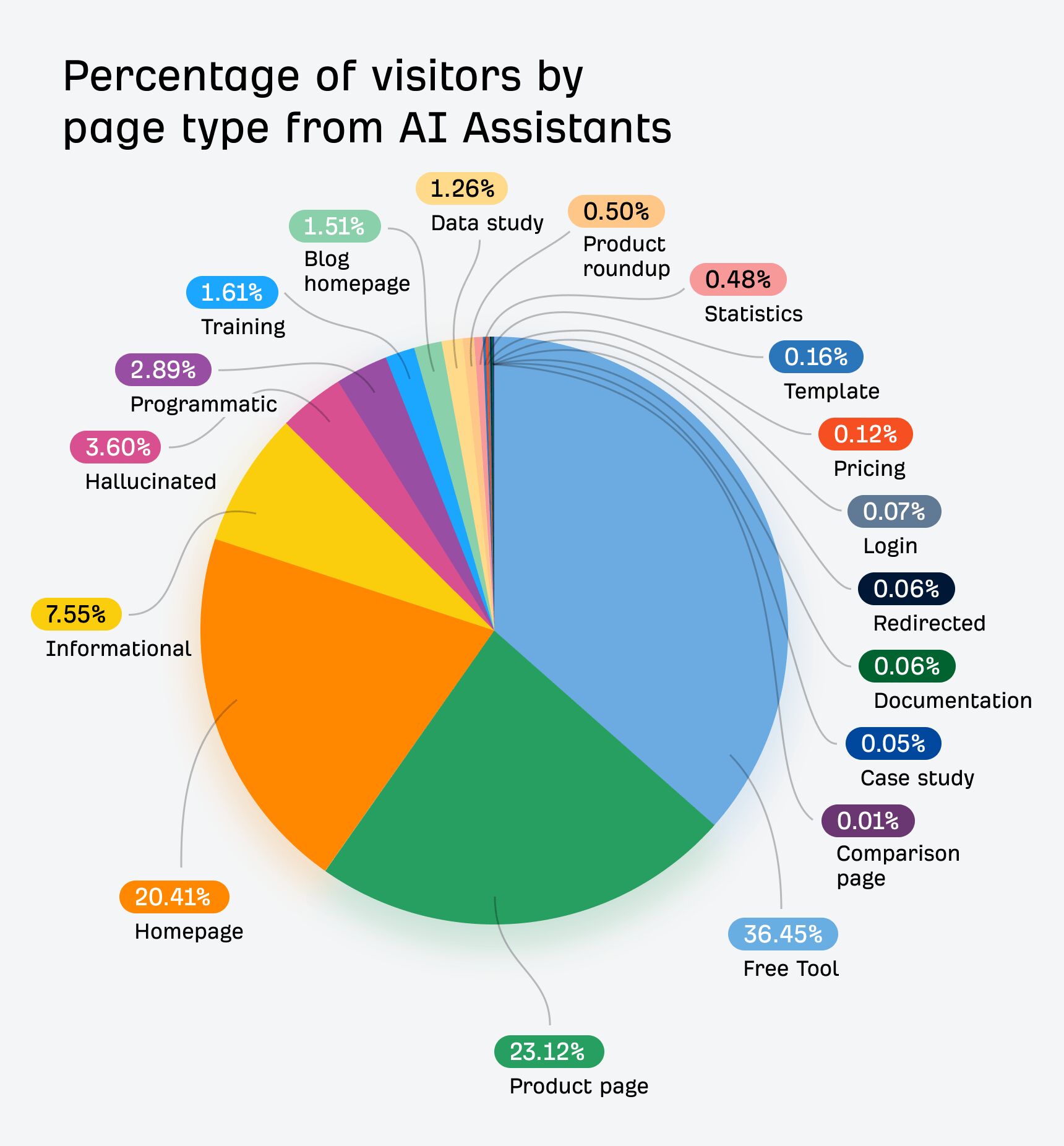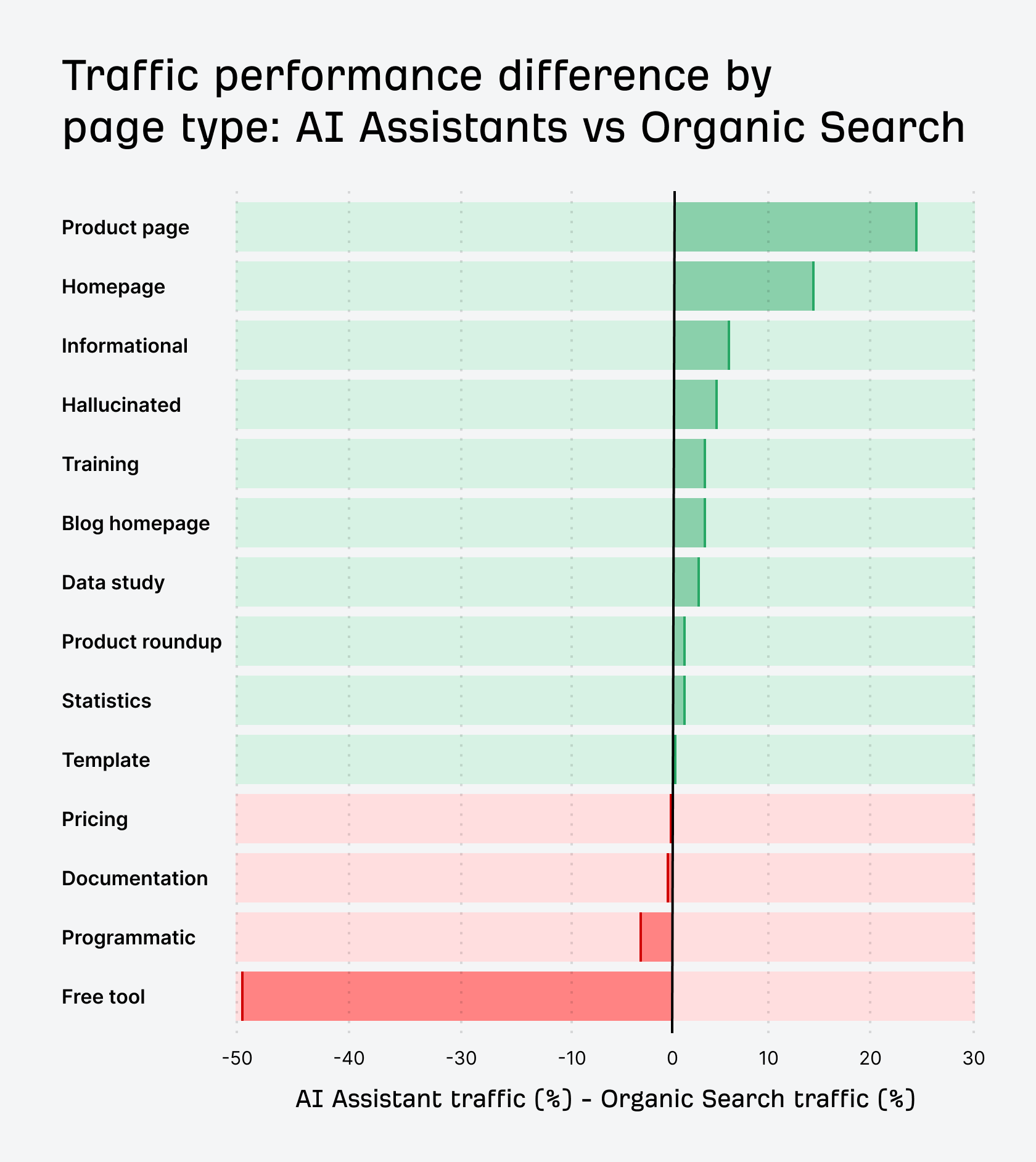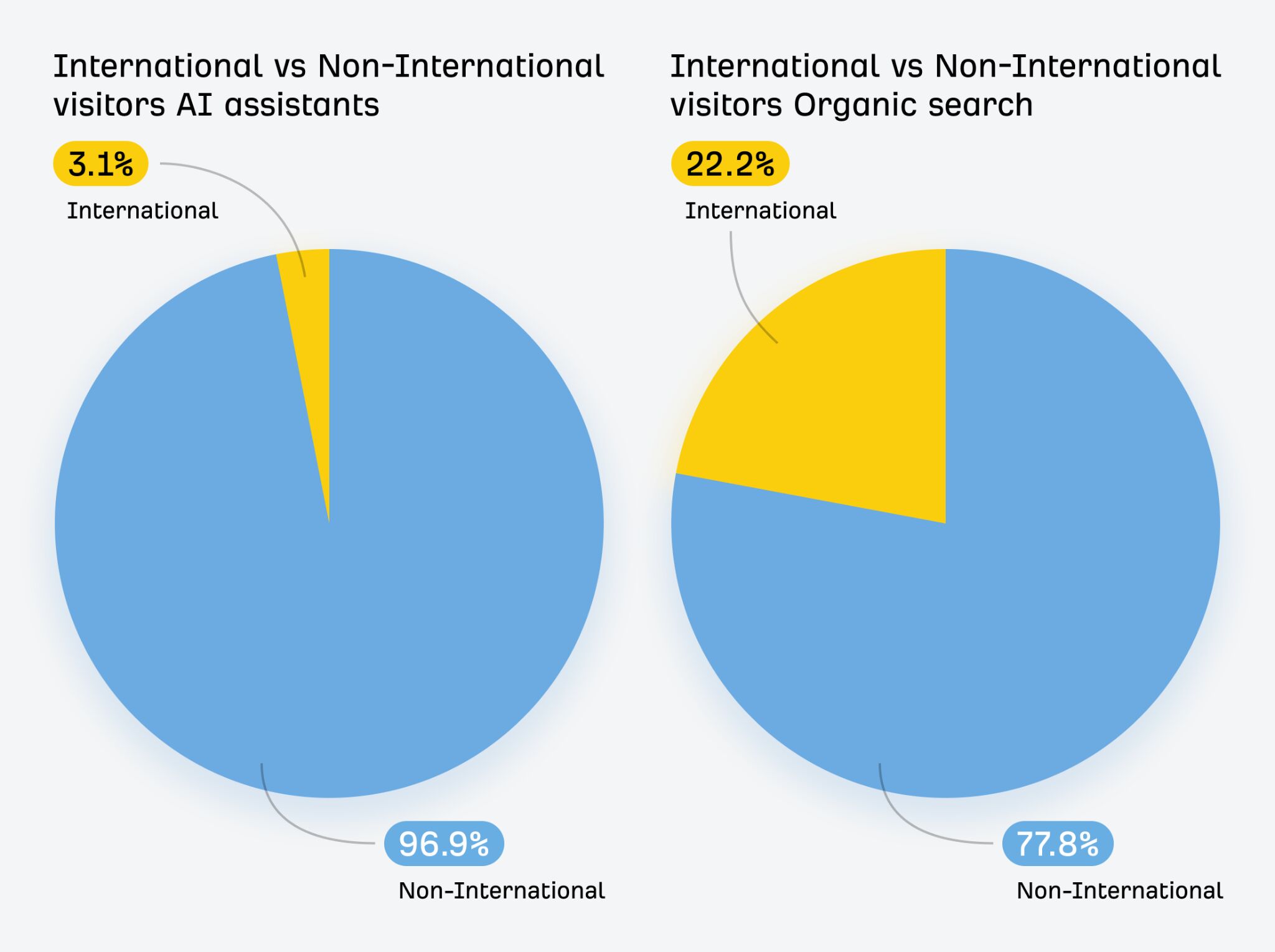To answer this question, I looked at the referral traffic from AI Search using Ahrefs Web Analytics and compared that to traffic from Organic Search for ahrefs.com. Ahrefs Web Analytics, a simple, free, and privacy-focused alternative to Google Analytics. Try it out if you haven’t already.
We have a channel segment for LLMs that groups the traffic from different AI assistants together. You don’t have to go add something custom for it like you would in GA4. For the last 30 days, 0.5% of our traffic is from AI search. 0.3% YTD.
I want to add a couple caveats. Not all traffic from AI assistants is being recorded properly. I’m hoping many will fix this issue, but until then, everyone will have attribution issues where AI search traffic is undercounted. AI Overviews are also not broken out in a way that can be reliably tracked, so that traffic is lumped in with organic search traffic for this study.
Let’s dive in.
Over 80% of our referral traffic from AI search goes to just 3 content types. Free tools, product pages, and our homepage.

Ahrefs is well-known for our informational content, our courses, and data studies. We have the best content in the entire SEO industry, but all of our content that aligns with what search engines are telling us to do is driving only a fraction of the traffic from AI search.
Did they lie to us? Is great content where we should be focused or are AI assistants just going to steal that traffic? Keep reading to find out.
Wait, what? 3.6% of the traffic went to hallucinated pages
Those pages don’t exist on ahrefs.com. These systems made them up. It was mostly ChatGPT making things up, but other systems had a few hallucinations as well.
To check this, I used Google Sheets and fetched the status codes of the pages. We’re adding a way for you to easily check this in Ahrefs Web Analytics soon.
What I’d recommend is to pick some threshold of visits to these pages, say 10 / month, where it’s worth your time and effort to recover that traffic, and redirect them to relevant pages.
Here’s a view into how the traffic makeup changes between AI search referrals and organic search.

Product pages and the homepage over-perform in AI search compared to organic search. Does that mean I should be doing something to optimize the content of these pages for AI search?
Probably not. It means we have a strong brand and strong products that get recommended by these systems. We’ll continue to build better products and win the hearts and minds of digital marketers everywhere.
All of our helpful content also performs better in AI search than it does in search, at least as a percentage of traffic. Everyone thinks top of funnel content is dead in AI search, that these systems will just provide all the answers. However, we’re seeing better performance for all of our informational content types.
AI search still don’t send much traffic to websites compared to search, so the visibility isn’t there and I’m not sure it will scale linearly. We saw that AI Overviews reduced clicks by 34.5%, and Google AI Mode will likely reduce them further.
Does that mean we should stop optimizing for this kind of traffic? No. It just means we’re going to have to fight harder for smaller amounts of traffic. The cost / benefit analysis is changing. Higher cost and effort content is going to be harder to justify if it doesn’t drive as much brand visibility or revenue.
Free tools was the big loser in the AI search vs organic search traffic comparison. They were still our biggest driver of traffic with 36.4% of all the traffic going to them, but that’s just not as good as it is in organic search. These are still worthwhile to invest in, as they are good lead drivers for us and it looks like they will still make up a significant amount of the traffic we get from AI search.
It doesn’t look good for international pages. For search traffic, these make up 22.2% of all clicks to the site. For AI search traffic, it’s just 3.1%.

I’m not sure if this is because people aren’t using the chats in other languages or if these pages are under-represented in their training data. I hope this number grows in the future, but right now it doesn’t look good for international traffic.
Final thoughts
While AI search traffic goes to different pages, I don’t think we’ll be making any major shifts in our strategy based on this data, at least not yet. AI search traffic is increasing, but it’s still a fraction of a % of our overall traffic.
Have questions? Message me on LinkedIn or X.


